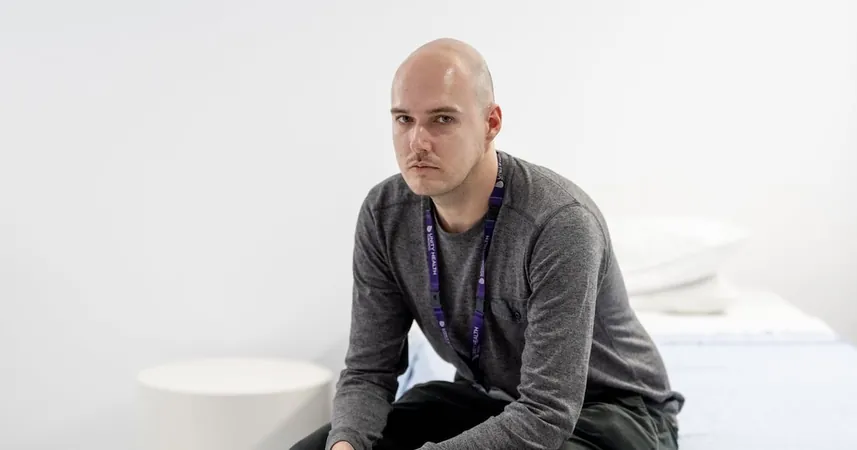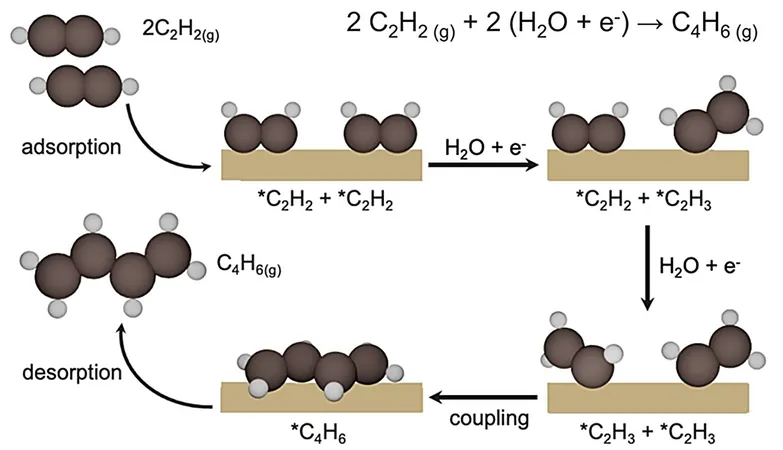
Revitalizing Hope: Inside Toronto's Transformative Drug Withdrawal Centre
2024-11-24
Author: Olivia
Toronto - A Beacon of Recovery
In the heart of downtown Toronto, a new model for addiction recovery is dawning, bringing a ray of hope to those struggling with substance use. Joshua Orson, once an addict and now a compassionate health-care worker, reflects on his journey while seated in a bright, inviting room at the newly opened 36-bed detox centre. This facility is primarily designed for the homeless, but it welcomes anyone seeking to break free from the chains of addiction.
The state-of-the-art centre, operated by Unity Health Toronto, boasts private and shared rooms, a fully equipped kitchen, laundry facilities, and comfortable lounges where patients can relax, watch television, or enjoy a game of cards. Here, treatment is holistic, offering both group and individual therapy led by dedicated addictions counselors and a full-time nursing staff. The facility operates 24/7, ensuring that assistance is always available.
A New Era of Treatment
This centre represents a stark contrast to the previous environment where many found themselves detoxing - a makeshift dorm in a dilapidated homeless shelter lacking privacy and proper facilities. Orson, who turned his life around here, describes the change: “When you step through those doors, there’s a felling of dignity and hope, something that was lost for so long.”
Since opening just a few weeks ago, the detox centre has quickly filled its 36 beds and remains at capacity, with Dr. Irfan Dhalla, the vice-president of clinical programs at Unity, indicating that vacancies arise frequently due to its short-term residential design.
The new facility is part of a larger movement addressing the alarming rise in overdose deaths in Ontario, which saw nearly 2,600 fatalities in the last year—the majority linked to fentanyl. This crisis has sent shockwaves across the province, pushing emergency reforms in addiction services.
Evolving Strategies Amidst Crisis
The provincial government’s response includes closing ten supervised consumption sites, which it deems too close to schools and daycares, following a tragic shooting incident near one such site. In its place, the government plans to launch 19 “Homelessness and Addiction Recovery Treatment” (HART) hubs, alongside 375 supportive housing units, amounting to an investment of $378 million aimed at curtailing the devastating impact of addiction.
The crisis has particularly ravaged the homeless population, with gangs and organized crime making opioids widely accessible throughout Ontario—urban centers like Toronto are especially hard hit.
A Successful Design for Recovery
Dr. Dhalla emphasizes that the design and feel of the detox centre play a crucial role in recovery, stating, “Spaces that convey care and love are essential. When individuals feel valued, they have a better chance of healing.”
Orson’s story is one of resilience. He began using drugs at a mere 14 years old and endured years of struggles with various substances while battling accompanying mental health issues, including depression and anxiety. A serendipitous encounter in an emergency room connected him with a case manager, leading him to the detox program that changed his life.
“Getting clean is only part of the journey,” Orson explains. “It’s about reintegrating into society afterwards.”
His experience at the old shelter was rife with challenges, yet it was a crucial step toward his current role as a peer support worker. “Helping others helps me stay on track,” he notes. “What people need most is hope, and this centre embodies that.”
As Toronto continues to grapple with its addiction crisis, the emergence of such facilities is a crucial step toward building a more compassionate and effective system of care. By fostering dignity, hope, and recovery in an optimistic space, the new drug withdrawal centre in Toronto not only aims to save lives but also to transform them.









 Brasil (PT)
Brasil (PT)
 Canada (EN)
Canada (EN)
 Chile (ES)
Chile (ES)
 España (ES)
España (ES)
 France (FR)
France (FR)
 Hong Kong (EN)
Hong Kong (EN)
 Italia (IT)
Italia (IT)
 日本 (JA)
日本 (JA)
 Magyarország (HU)
Magyarország (HU)
 Norge (NO)
Norge (NO)
 Polska (PL)
Polska (PL)
 Schweiz (DE)
Schweiz (DE)
 Singapore (EN)
Singapore (EN)
 Sverige (SV)
Sverige (SV)
 Suomi (FI)
Suomi (FI)
 Türkiye (TR)
Türkiye (TR)